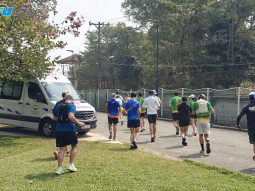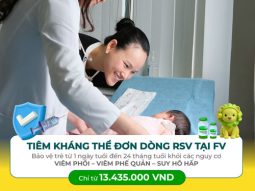All international hospitals draw up strict guidelines for visitors. To patients’ families and friends, it might appear as if the hospital is just trying to make life difficult. However, these guidelines are extremely important: they help staff to control and reduce the spread of disease and ensure the comfort and security of patients. Below are five common guidelines for people visiting international hospitals in developed countries:
Live flowers and plants in patients’ rooms must be limited:
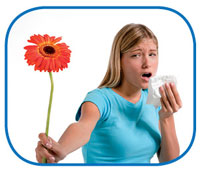
While flowers may be comforting for patients, they are also an infection risk as they entice insects. Most international hospitals offer green space with plants and flowers which are carefully cared for and controlled to minimise insect infestation. Visitors bringing uncontrolled flowers into the hospital could put patients at risk.
Visits for patients under 16 years of age are restricted and visitors must be accompanied by responsible adults.
The 2009 influenza A/H1N1 is a memorable reminder to us all of just how fast infection can spread. Children are one of the most at-risk groups in terms of infection and complications, or even death, as their immune system is less developed than that of an adult. Although bacterial contamination is well controlled, hospitals are still an infection-risk environment. Children should not visit the hospital unless it’s an absolute necessity.

No more than two persons should visit a patient at any one time:
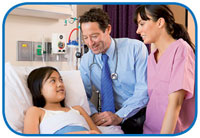
This is considered one of the most strict visitor guidelines, yet is completely unfamiliar to hospital visitors in Vietnam. Normally there is no limit on the number of persons than can visit a patient in a Vietnamese public hospital. However, too many visitors can make it difficult for nurses to take care of their patients. Patients need space and privacy to rest. Too many visitors at one time may place a strain on the patient’s recovery.
Visitors must check with nurses before giving washed fresh fruit or water to patients:
In most cases, washed fresh fruits and water are good for the patient’s health as these foods help to increase resistance and enhance toxic elimination. However, in certain cases, fresh fruit and water are classified as a “contraindication”. For example, patients preparing for surgery should not drink water, even boiled water; and patients experiencing stomach complaints should not eat acidic fruits, etc. Additionally, all food and drink containing alcohol is absolutely forbidden.
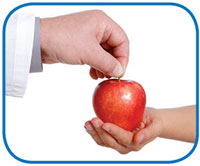
Pet visitation is not permitted:
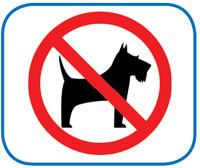
Hair, faeces, saliva, etc are common carriers of pathogens and infection and place patients with poor immune resistance at risk. Noises during pet visits may be stressful for other patients. For safety and security reasons, for both your loved one and other patients, visits with pets are not permitted.
To ensure rest, diligent care and timely treatment, faster patient recovery and a clean hospital environment, from 1 November 2010, FV Hospital will release new guidelines for visitors. These new guidelines give clear regulations on general visiting hours, special ward visiting hours and other standard guidelines applied to an international hospital. However, our guidelines have been developed with the sole purpose of bringing the highest levels of satisfaction to patients and their family members.

 Vi
Vi 
